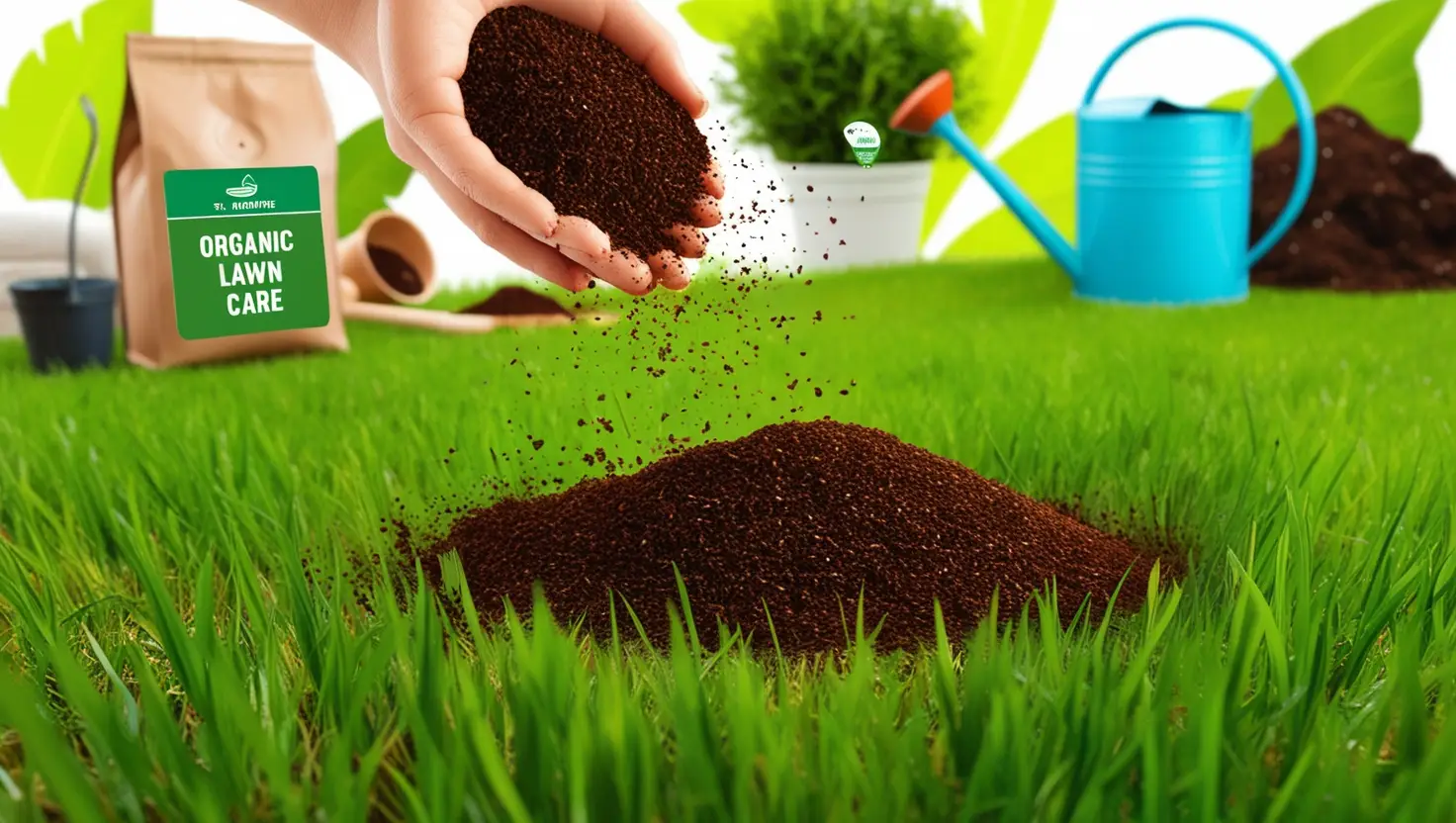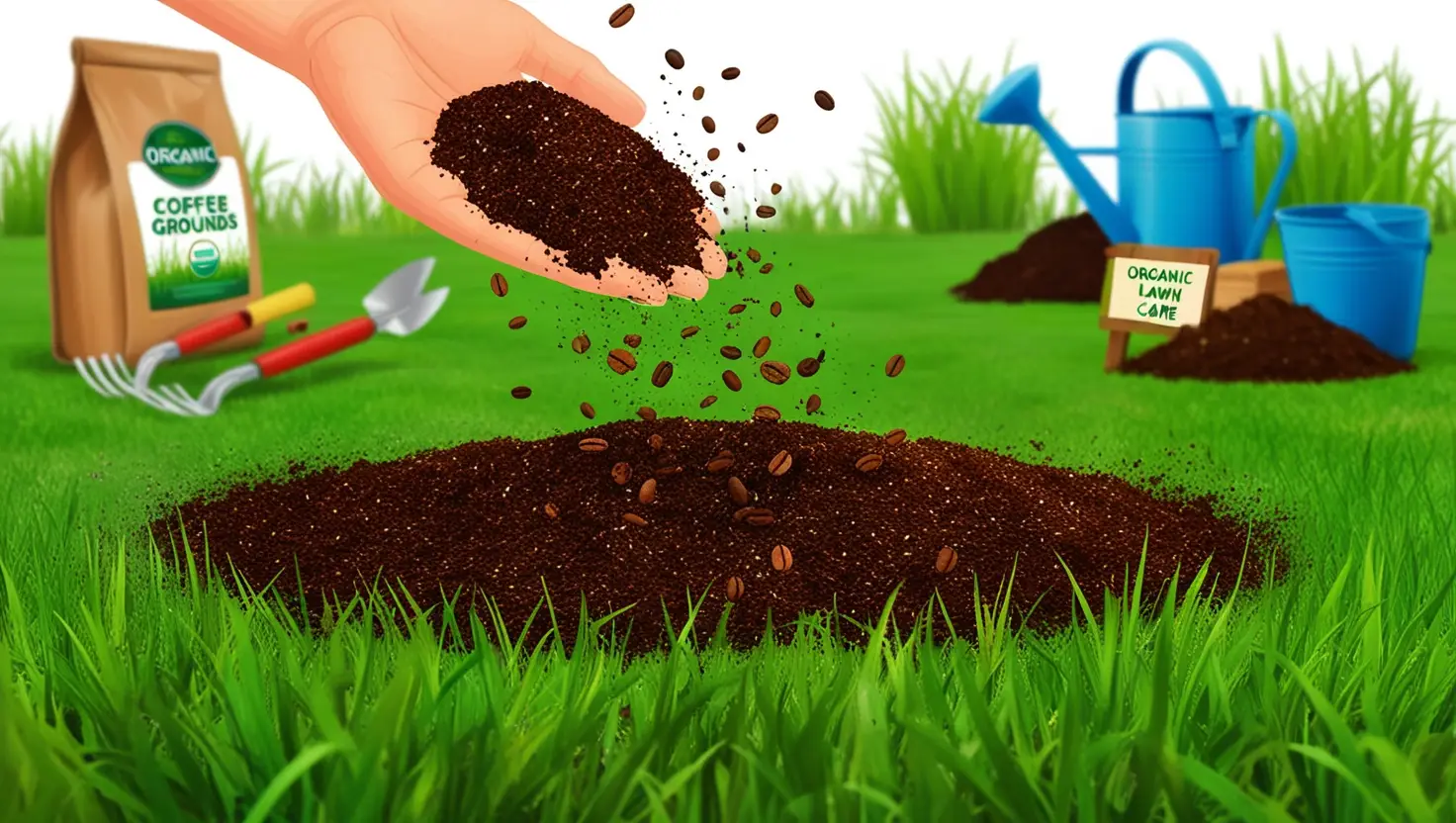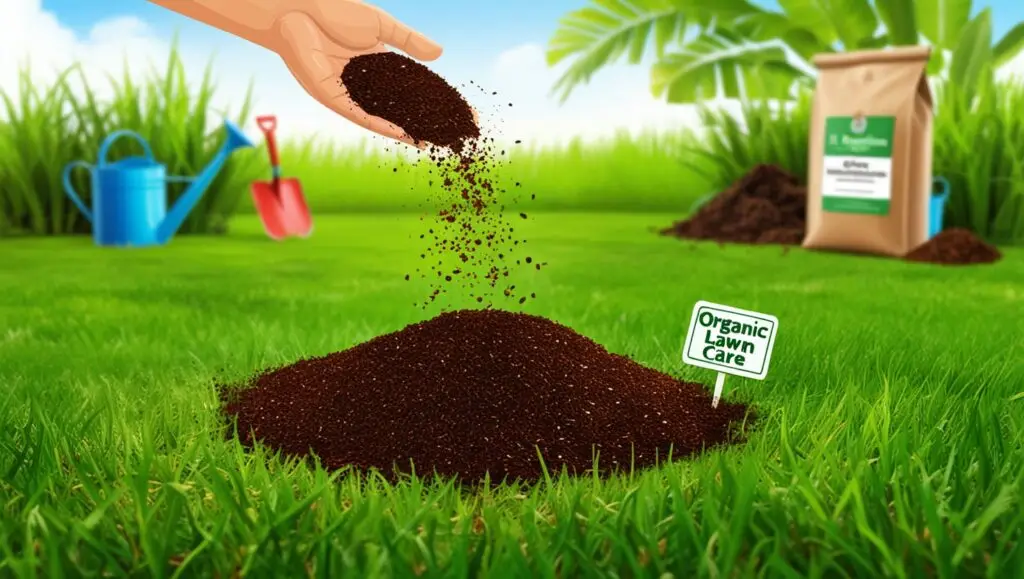Does St. Augustine Grass Like Coffee Grounds?
Lawn care enthusiasts are always searching for natural and sustainable ways to promote lush, healthy grass growth. Recently, coffee grounds have become a popular home remedy for fertilizing lawns and gardens due to their nutrient-rich properties. But does this simple kitchen waste benefit all types of grass, including the much-loved St. Augustine grass? Many homeowners with St. Augustine lawns wonder, “Does St. Augustine grass like coffee grounds?“
In this comprehensive guide, we’ll explore the potential benefits and drawbacks of using coffee grounds on St. Augustine grass, how to apply them correctly, and whether this natural fertilizer is truly a good fit for your lawn. By the end, you’ll have a clear understanding of whether coffee grounds can help or harm your St. Augustine lawn, as well as other sustainable lawn care practices to consider.
Understanding St. Augustine Grass and Its Needs
Before diving into the use of coffee grounds, it’s important to understand St. Augustine grass and its specific requirements. St. Augustine is a warm-season grass that thrives in coastal regions, particularly in the southern United States. It’s known for its dense, coarse texture and vibrant green color, making it a popular choice for lawns in warm climates.
St. Augustine grass requires:
- Nutrient-rich soil: Like most grass varieties, St. Augustine benefits from soil that contains essential nutrients like nitrogen, phosphorus, and potassium.
- Moderate watering: This grass thrives with consistent watering, but it’s also drought-tolerant once established.
- Well-draining soil: While it can handle wet conditions, St. Augustine prefers well-drained soil to avoid root rot.
- Regular mowing and maintenance: Keeping St. Augustine at a healthy height of about 3–4 inches encourages thicker growth and reduces weed competition.
Given these basic needs, it’s clear that proper fertilization is key to maintaining a healthy St. Augustine lawn. The question is whether coffee grounds can serve as an effective fertilizer for this grass type.
Are Coffee Grounds Good for St. Augustine Grass?
Coffee grounds are often touted as a great source of organic material for gardens and lawns. Rich in nitrogen, coffee grounds can theoretically promote healthy grass growth, especially in nitrogen-hungry plants. But the real question remains: Do coffee grounds suit St. Augustine grass specifically?
Let’s look at the potential benefits:
1. Coffee Grounds Provide Nutrients

Coffee grounds are a natural source of nitrogen, an essential nutrient for plant growth. Grass, including St. Augustine, relies on nitrogen to promote healthy, green, and vigorous growth. While most nitrogen-rich fertilizers are synthetic, coffee grounds offer an organic alternative. Besides nitrogen, coffee grounds also contain other nutrients such as potassium, phosphorus, and small amounts of calcium and magnesium, all of which are beneficial for overall soil health.
For homeowners looking to boost the nitrogen content of their lawn naturally, coffee grounds can be a cost-effective solution. St. Augustine grass, which thrives on nitrogen, can benefit from the additional nutrients provided by coffee grounds, helping to stimulate growth and maintain its characteristic deep green color.
2. Organic Matter Improvement
Adding organic matter to your soil is crucial for maintaining long-term soil health. Coffee grounds break down into the soil and improve its structure by increasing organic matter content. This, in turn, enhances moisture retention and helps support the beneficial microbial activity in the soil, creating a more robust environment for St. Augustine grass roots.
Since St. Augustine prefers well-draining soil, the use of coffee grounds can help improve both aeration and water retention. Over time, this can contribute to stronger root development and improved drought resistance.
3. Coffee Grounds May Help with Soil Acidity
St. Augustine grass prefers slightly acidic to neutral soil with a pH level of around 5.0 to 7.0. Fresh coffee grounds are often slightly acidic, but after brewing, they become closer to neutral. Adding used coffee grounds to your lawn in moderate amounts won’t drastically change your soil’s pH but may provide a small acidifying effect if your soil is too alkaline.
If your St. Augustine grass is struggling in slightly alkaline soil, coffee grounds might help to bring the pH closer to the optimal range. However, if your soil is already acidic, overuse of coffee grounds could potentially make it too acidic, which might hinder St. Augustine growth.
How to Apply Coffee Grounds to St. Augustine Grass
If you decide to use coffee grounds as a natural supplement for your St. Augustine lawn, it’s important to do so correctly. Overuse or improper application can cause more harm than good. Here’s how to incorporate coffee grounds into your lawn care routine:
1. Use Moderation
While coffee grounds can provide essential nutrients, it’s important not to overdo it. A thin layer of coffee grounds applied once every few months is sufficient. Applying too much coffee grounds can lead to nutrient imbalances and may attract pests. Additionally, a thick layer of coffee grounds can create a crust that prevents water and air from reaching the soil.
2. Apply Directly or Compost First
There are two main ways to use coffee grounds in your lawn care:
Direct Application: You can sprinkle coffee grounds lightly over your St. Augustine grass, but it’s essential to ensure an even distribution. After spreading the grounds, water them lightly to help them settle into the soil. Make sure the coffee grounds don’t clump together, as this could create a barrier that limits water and air flow.
Composting First: A more effective method might be composting the coffee grounds with other organic material. Coffee grounds, when added to compost, break down into rich organic matter that can later be spread on the lawn. Composting also ensures that the coffee grounds are fully broken down and integrated with other nutrients.
3. Mix with Lawn Fertilizer
If you’re hesitant about using coffee grounds on their own, consider mixing them with your usual lawn fertilizer. This can provide a balanced source of nutrients without the risk of over-application. A mixture of coffee grounds and fertilizer can give your St. Augustine grass a steady dose of nutrients without overwhelming the soil.
Potential Drawbacks of Using Coffee Grounds on St. Augustine Grass

While coffee grounds offer several benefits, there are a few potential drawbacks to be aware of when using them on St. Augustine grass:
1. Soil Acidity Concerns
Although used coffee grounds are generally considered neutral in pH, applying them excessively can lead to increased acidity in the soil. Since St. Augustine grass prefers slightly acidic to neutral soil, an overly acidic environment may negatively impact growth. Therefore, it’s important to monitor your soil’s pH levels if you plan to use coffee grounds frequently.
2. Risk of Fungal Growth
Coffee grounds, when spread too thickly, can retain moisture and create the ideal conditions for fungal growth. Fungi can cause patches of your St. Augustine lawn to turn brown or die off, creating an unsightly appearance. To avoid this, always apply coffee grounds in thin layers and ensure they are spread evenly to allow proper air circulation.
3. Attracting Pests
While coffee grounds can repel some pests, such as slugs and snails, they may attract others. Ants, in particular, may be drawn to areas where coffee grounds are heavily applied. If you already have an issue with ants or other pests in your yard, adding coffee grounds might exacerbate the problem.
Other Natural Fertilizer Options for St. Augustine Grass
If you’re not completely sold on the idea of using coffee grounds on your lawn, there are other natural fertilizer options that may suit St. Augustine grass even better. Some alternatives include:
1. Grass Clippings
Leaving grass clippings on your lawn after mowing is a great way to naturally fertilize your St. Augustine grass. The clippings break down and return valuable nutrients, like nitrogen, to the soil, promoting healthy growth.
2. Compost
Using homemade or store-bought compost is one of the most effective ways to improve soil health and nourish your St. Augustine lawn. Compost adds organic matter and beneficial microbes, improving soil structure and boosting growth.
3. Bone Meal
Bone meal, made from ground animal bones, is an organic source of phosphorus and calcium. It helps promote root growth and is an excellent choice if your soil is deficient in phosphorus.
4. Manure
Well-composted manure, such as cow or chicken manure, provides a rich source of nutrients and organic matter to your lawn. Just be sure to use manure that has been properly composted to avoid introducing harmful bacteria or pathogens.
Frequently Asked Questions
Can coffee grounds be used as fertilizer for St. Augustine grass?
Yes, coffee grounds can be used as a fertilizer for St. Augustine grass, as they provide essential nutrients like nitrogen. However, they should be applied in moderation to avoid soil acidity and moisture retention issues.
How often should I apply coffee grounds to my lawn?
It’s recommended to apply coffee grounds sparingly, about once every two to three months. Over-application can cause problems with soil acidity and water retention.
Can coffee grounds make my lawn too acidic?
Used coffee grounds are closer to neutral in pH, but excessive use can increase soil acidity, which may negatively impact the growth of St. Augustine grass. It’s important to monitor your soil’s pH if you’re using coffee grounds frequently.
Should I compost coffee grounds before using them on my lawn?
Composting coffee grounds before using them on your lawn can be a better approach, as it helps them break down and mix with other organic materials. This reduces the risk of issues like clumping or nutrient imbalances.
Do coffee grounds attract pests to the lawn?
Coffee grounds can attract certain pests, like ants, if applied too heavily. However, they may also deter pests like slugs. To avoid attracting pests, use coffee grounds sparingly and mix them into the soil or compost.
What’s the best natural fertilizer for St. Augustine grass?
In addition to coffee grounds, other natural fertilizers like grass clippings, compost, bone meal, and composted manure are great options for St. Augustine grass. These provide essential nutrients and improve soil health.
Conclusion
So, does St. Augustine grass like coffee grounds? The answer is a cautious yes. Coffee grounds can benefit St. Augustine lawns by providing nitrogen, improving soil structure, and helping with moisture retention. However, they should be used in moderation, as overuse can lead to soil acidity and moisture-related problems. For best results, consider incorporating coffee grounds into a broader natural fertilization strategy, using compost, grass clippings, and other organic materials to keep your St. Augustine lawn lush and healthy year-round.
Related Posts

